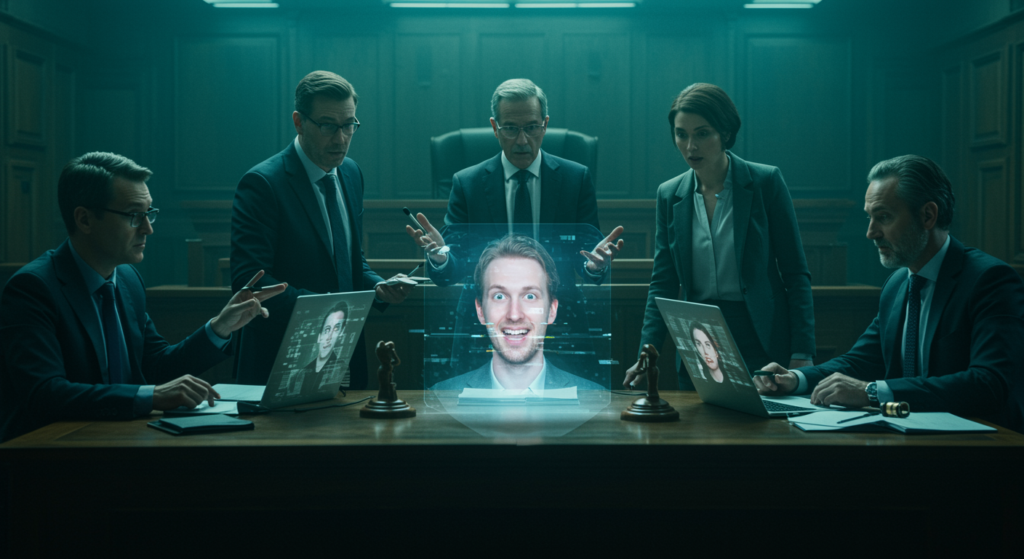
AI-Generated Deepfake Laws Advance to President’s Desk
Milestones in Deepfake Legislation
Deepfake legislation is finally gaining momentum, and it’s a game-changer for how we handle AI’s darker side. In a rare moment of unity, Congress has passed the Tools to Address Known Exploitation by Immobilizing Technological Deepfakes on Websites and Networks Act, known as the TAKE IT DOWN Act. This bill, which sailed through the House with a 409-2 vote on April 28, 2025, is now on its way to President Trump’s desk for what looks like an easy sign-off.
You might wonder, what makes this so urgent? It’s all about tackling the surge in AI-generated deepfakes that exploit people without their consent, turning everyday folks into victims of digital abuse. With deepfake legislation like this, we’re seeing the first real federal push to curb these harms before they spiral out of control.
Key Provisions of the Take It Down Act
The TAKE IT DOWN Act is packed with measures that directly address deepfake legislation needs, making it easier to fight back against non-consensual content. It criminalizes the creation and spread of AI-generated intimate images, ensuring that platforms must act fast—within 48 hours of a report—to remove such material.
Imagine you’re a victim of this technology; under this new deepfake legislation, social media sites would have to step up quickly, potentially sparing you ongoing distress. The bill also sets penalties, like fines and up to three years in prison for cases involving minors, while establishing federal standards to fill gaps in state laws. Senator Ted Cruz, a key driver behind this, called it a win for survivors, saying it holds predators accountable and reduces repeated trauma.
Broad Support Across the Political Spectrum
It’s fascinating how deepfake legislation has bridged divides, drawing support from both sides of the aisle. Led by Senator Ted Cruz and co-sponsored by representatives like Maria Elvira Salazar and Madeleine Dean, this bill shows that protecting people from AI harms isn’t a partisan issue.
First Lady Melania Trump has been vocal in backing it, and groups from the American Principles Project to Public Citizen are on board. Have you ever thought about how technology can unite us? This deepfake legislation proves it, highlighting a shared concern for digital privacy and safety in our online world.
Impact on Schools and Young People
Deepfake laws are especially vital for schools, where AI tools are being misused to create fake nudes of students—mostly targeting girls. Reports show this is becoming all too common, with incidents rising in classrooms across the country.
Take Francesca Mani, a high school student whose story helped spark this legislation; her experience not only influenced the TAKE IT DOWN Act but also led to stricter rules in New Jersey. A 2024 report from the Center for Democracy and Technology noted that schools often respond with suspensions or legal actions, but now, with deepfake legislation in place, there’s a federal backstop to prevent these harms. What if your child was affected—wouldn’t you want these protections?
How State-Level Deepfake Legislation is Evolving
While the TAKE IT DOWN Act is a federal breakthrough, states have been pioneering their own deepfake legislation for years. New Jersey, for instance, treats creating or sharing deepfakes as a third-degree crime, with fines up to $30,000 and jail time.
California’s laws classify distributing such images as a misdemeanor, with up to a year in prison and $2,000 fines. And let’s not forget the 20 states that have cracked down on AI in elections to stop deceptive deepfakes from swaying votes. In 2025, even more states are proposing updates, showing how deepfake legislation is adapting to real threats, even if AI’s election impact was overstated.
The Growing Threat of AI-Generated Misinformation
Beyond intimate imagery, deepfake legislation must tackle the wider problem of AI-fueled misinformation. Studies, like one from PMC, reveal that about 20% of visual misinformation online involves manipulated images, spiking during elections or conflicts.
People often can’t tell AI-generated text from the real deal, making it a perfect tool for propaganda. This is why the European Union’s AI Act requires labeling such content, and it’s a reminder that deepfake laws could set a precedent for broader safeguards. Ever shared something online that turned out to be fake? It’s a common pitfall, but with evolving deepfake legislation, we might finally get ahead of it.
A Model for Future AI Regulation
The TAKE IT DOWN Act isn’t just about one issue—it’s a blueprint for how deepfake legislation can evolve without overhauling all of AI. Congress is opting for targeted fixes rather than massive overhauls, which makes sense in a fast-changing tech landscape.
For survivors like Francesca Mani, this means reclaiming control and dignity. It’s a focused approach that could inspire more laws on other AI risks, proving that addressing constituent concerns one step at a time works better than broad strokes.
Media Industry Concerns About AI-Generated Content
The media world is watching deepfake legislation closely, worried about AI creating false news or deepfakes that mimic trusted sources. Publishers use AI for tasks like content summaries but always with human oversight to avoid errors.
This highlights a key gap: public AI tools lack those checks, leading to misinformation. As deepfake laws advance, the industry is pushing for ethical AI development to balance innovation with accuracy—something we all benefit from in an era of digital doubt.
What Happens Next
With the TAKE IT DOWN Act heading to the President’s desk, deepfake legislation is on the cusp of becoming law, especially since Trump has voiced support before. Once signed, platforms will need to ramp up their removal processes, and law enforcement will have stronger tools to act.
For victims, this means quicker takedowns and real accountability, cutting down on the emotional toll. It’s a practical step that balances AI’s benefits with necessary boundaries, don’t you think?
Conclusion: A Milestone in Digital Protection
The TAKE IT DOWN Act marks a pivotal moment in deepfake legislation, affirming that AI’s misuse won’t go unchecked. This bipartisan effort underscores our collective commitment to privacy and safety in a digital age.
As technology races ahead, laws like this remind us of the ethical lines we must draw. If you’re passionate about online rights, consider sharing your story or advocating for more protections—your voice could make a difference. What are your thoughts on how AI is shaping our world? We’d love to hear in the comments, and feel free to explore our other articles on tech ethics for more insights.
References
- Time Magazine. “AI Deepfakes and the Take It Down Act.” Link
- Mintz. “Senate Passes AI Deepfake Bill.” Link
- NCSL. “Artificial Intelligence 2025 Legislation.” Link
- K-12 Dive. “Congress Passes Take It Down Act.” Link
- R Street Institute. “Update on 2025 State Legislation to Regulate Election Deepfakes.” Link
- PMC. “AI-Generated Misinformation Study.” Link
- News Media Alliance. “AI and News Industry Response.” Link
deepfake legislation, Take It Down Act, AI pornography laws, non-consensual deepfakes, Ted Cruz deepfake bill, digital privacy protection, AI deepfakes, non-consensual imagery, AI regulation, deepfake laws





